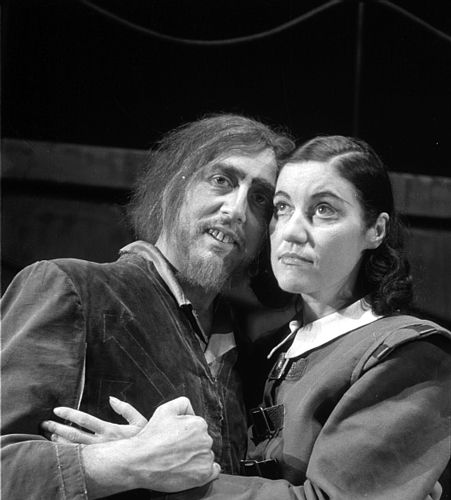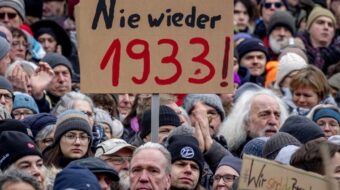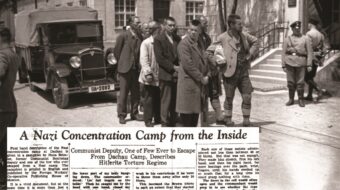
To inaugurate the resuscitation of normal civilian life in Germany 70 years ago, the Deutsche Oper staged Ludwig van Beethoven’s only opera Fidelio under the baton of Robert Heger as the first opera performed in Berlin after the end of the World War II. The performance took place at the only undamaged theater in the city, the Theater des Westens, on September 4, 1945.
To Germans, as well as to the Allied occupation armies in the city, the anti-tyrant opera first performed in Vienna in 1805, featuring a chorus of starved prisoners, represented one of the highest points of German humanism, a necessary reminder of what the best in German culture could produce.
In Henry Stewart’s one-sentence summary of the plot, “A political prisoner’s wife goes undercover as the male title character, infiltrates the family of the prison guard and frees her husband from a secret dungeon just as the local petty tyrant is about to kill him.”
It had not occurred to the Nazis to ban this famous opera, the work of a certified “Aryan” composer, during their rule. They counted on German audiences not to make the connection between the despotic colonial ruler Pizarro and Adolf Hitler. At the time, the most famous German novelist Thomas Mann remarked, “What amount of apathy was needed [by musicians and audiences] to listen to Fidelio in Himmler’s Germany without covering their faces and rushing out of the hall!”
Fidelio was a traditional piece used to celebrate democratic moments. It was the choice of world-famous anti-fascist conductor Arturo Toscanini in December 1944, at the time of the Battle of the Bulge, one of the last great battles of World War II. He led the first complete opera performance to be broadcast over the NBC radio network, by the NBC Symphony Orchestra, featuring soloists from the Metropolitan Opera, and later issued as an RCA Victor recording. Toscanini made it clear that Beethoven believed in liberty and was opposed to tyrants such as Napoleon; in the conductor’s opinion, Beethoven would have likely opposed both Hitler and Mussolini.
Fidelio also re-opened the Vienna State Opera in 1955.
The first night of Fidelio at the Semperoper in Dresden on October 7, 1989, marking the occasion of the 40th anniversary of the German Democratic Republic, coincided with violent demonstrations for political change at the city’s main train station. The applause after the “Prisoners’ Chorus” interrupted the performance for a considerable time. The production by Christine Mielitz had the chorus appear in normal street clothes at the end, signifying their role as representatives of the audience. Four weeks later, on November 9th, the fall of the Berlin Wall foretold the end of East Germany’s existence before reunification with West Germany the following year.
Adapted from Wikipedia and Henry Stewart “Operapedia: Fidelio,” Opera News, August 2015.
Photo: Florestan (Günther Treptow) and Leonore (Karina Kutz); September 1945, Deutsche Oper Berlin “Fotothek df pk 0000016 b 041 Szenenbilder” by Deutsche Fotothek. Licensed under CC BY-SA 3.0 de via Commons.












Comments